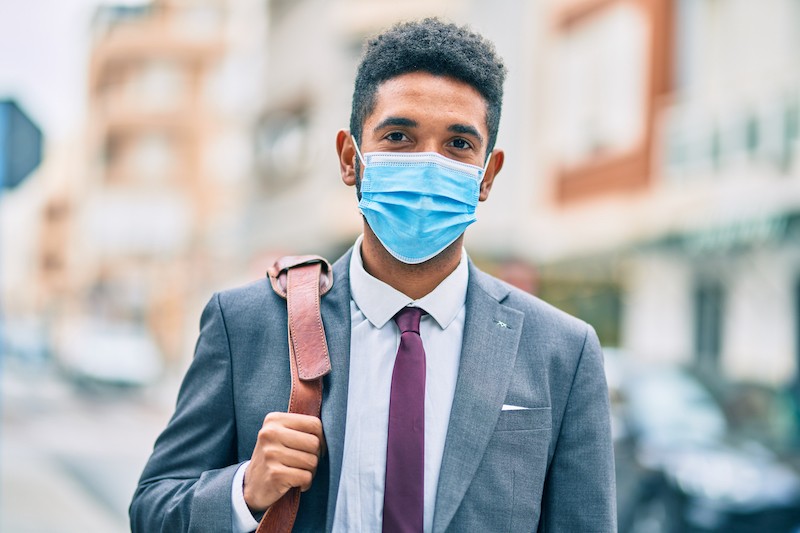New research reveals one in five suffer from COVID-19 anxiety syndrome

Experts are noticing a considerable rise in COVID-19 Anxiety Syndrome as we re-open society. The easing of restrictions and rollout of vaccines are generating widespread relief, but for those battling Covid-related anxiety, the crisis is far from over.
The concept of “COVID-19 Anxiety Syndrome” was first theorised by professors last year, when Ana Nikčević, of Kingston University, and Marcantonio Spada, at London South Bank University, noticed people were developing a particular set of traits in response to Covid.
A chronic fear of reintegration has built up, and people are now living in a self-imposed lockdown. In fact, one in five participants scored highly on a Covid-19 Anxiety Syndrome Scale. This scale identified those living in fear of either themselves or loved ones catching the virus and coping mechanisms, including excessive avoidance of certain situations, frequent symptom checking and attention to threat (if others are displaying symptoms of the virus).
Marcantonio Spada, professor of addictive behaviours and mental health at London South Bank University and CBT Therapist at Onebright, said,
“Fear is normal. You and I are supposed to fear the virus because it’s dangerous. The difference, however, in terms of developing a psychopathological response is whether you end up behaving in overly safe ways that lock you into the fear.
My expectation is we’re going to have chunks of the population that are avoiding re-engagement and constantly worrying about the virus for months to come, whether they are vaccinated or not.”
What are the traits of COVID-19 Anxiety Syndrome?
Restrictions are easing, but not in the minds of those living with Covid anxiety. Professor Spada’s research was reported by The Guardian and 5 News and illustrated that just over half of the participants strongly endorsed avoiding public transport because of a fear of contracting the virus and 49% avoiding touching things in public spaces. More severe symptoms include extreme or compulsive behaviours such as agoraphobia and obsessive cleaning. An inability to complete or focus on tasks, problems sleeping, and a loss of interest in connecting with friends and family can further show that support may be needed.
The research highlights that some forms of coping may exacerbate this fear and heighten anxiety. Additionally, it observed that the higher the levels of Covid-19 anxiety syndrome, the more likely it is that those people will be aware of the threat of catching the virus. This group also finds it harder to disengage from these threats, making returning to everyday living harder.
Onebright’s Clinical Director, Lee Grant, commented,
“It’s fair to say Covid-19 has impacted us in a way we couldn’t have imagined before the pandemic hit. Pre-pandemic, social butterflies, risk-takers or outgoing people are now faced with a new reality – Covid anxiety. So much so that Professor Spada’s recent research showed us that 38% of participants strongly endorsed avoiding going out in public places because of fear of the virus.
Cognitive behavioural therapy (CBT) can be helpful to stop negative cycles by breaking down things that make you feel bad, anxious or scared. CBT can make problems feel more manageable and can create coping mechanisms for when the feelings resurface.”
Is CBT the recommended treatment for COVID-19 Anxiety Syndrome?
If you think you or someone you love is struggling with COVID-19 Anxiety Syndrome, you may decide to seek professional help. Engaging in Cognitive Behavioural Therapy during difficult times will help you recognise signs of anxiety and advise you on tackling these feelings.
While we continue to navigate through the pandemic, CBT therapists can provide Remote Cognitive Behavioural Therapy sessions in the comfort of your home via telephone or digital channels. SilverCloud – Onebright’s online therapy programme – was designed to give clients access to flexible cognitive behavioural therapy, which is helpful for mild to moderate mental health issues like anxiety, low mood, or financial and work-related stress.
At Onebright, our goal is to encourage vulnerable people to stop dismissing signs of depression, reach out for the support they need and get back to feeling like themselves. To find out more about CBT therapy in London or online CBT, or to book an appointment with a BABCP-accredited therapist, please call us on 020 3795 8718, or send us a message.



